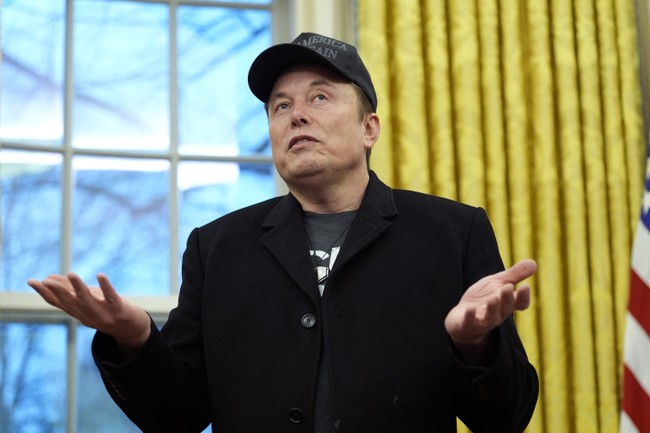
It’s an ongoing soap opera that is old as day-old sushi in a convenience store.
It’s been said that when titans clash, it’s not the thunder that matters; it’s the aftershocks. That’s what America is watching unfold as Donald Trump and Elon Musk, once uneasy allies, now teeter toward political divorce.
From the Chicago Tribune, the warning shot came from Trump: if Musk finances Democratic candidates in 2026, he will “pay serious consequences.” The message wasn’t coded. It was a mob-boss blunt.
But what’s fascinating isn’t the feud itself; two billionaires trading threats and barbs have become a Tuesday in this political age.
What matters is what’s happening further down the ballot in races most Americans can’t name yet.
Because when kings feud, pawns move. And this latest rupture could change the board entirely.
The Billionaire Divorce No One Saw Coming
Let’s rewind.
In 2024, Elon Musk funneled more than $250 million into the MAGA orbit via “America PAC.” He praised Trump’s economic nationalism, and even played a behind-the-scenes role in the Department of Government Efficiency, a role Democrats turned into a punchline. Musk’s libertarian-leaning tech-bro idealism seemed like the perfect fit for Trump’s deregulatory blitz.
But lately, the love fest has soured.
Musk called Trump’s $2.4 trillion “One Big Beautiful Bill” a “disgusting abomination.” He flirted with launching a third party, trashed Trump’s inner circle, and briefly posted, then deleted, cryptic references to Epstein. If Musk goes to war, he’s the perfect general.
Now, Trump’s warning has a very real bite.
Musk’s empire, from SpaceX to Starlink to Tesla, leans on government contracts and tax incentives. Trump doesn’t need to dismantle Musk’s wealth, just disrupt it.
A threat from the Oval Office isn’t theoretical.
But if Musk takes that $250 million and turns it toward anti-Trump Republicans and centrist Democrats, the real battlefield won’t be prime time.
It’ll be House races in Colorado. Senate contests in Virginia. School boards and referendums in swingy counties you’ve never heard of, and they’ll all suddenly be flush with cash.
The Down-Ballot Domino Effect
Already, rumblings are coming from districts where Musk’s libertarian halo carries weight.
Suburban independents in Northern Virginia, where federal workers grumbled over Musk’s proposed federal staffing cuts, are suddenly seeing Democratic messaging sharpen.
But the down-ballot play goes deeper.
In Florida: Democrats are exploring whether Musk’s feud with Trump can be weaponized in Miami-Dade, where moderate Cuban-Americans have drifted right in recent years. A tech billionaire feuding with a populist could peel those voters back.
In Arizona: A rumored Musk-backed Super PAC is eyeing secretary of state and state legislature races, hoping to back “neutral technocrats” who oppose both Trumpian election reforms and progressive ballot initiatives.
In Wisconsin: A political nonprofit is reportedly testing Musk-style messaging in counties such as Waukesha and Ozaukee. These are places where blue-collar libertarianism still lingers, but MAGA loyalty is no longer guaranteed. Musk might not win them to the left, but he might just keep them home.
That’s the actual risk for Trump.
If Musk’s network keeps red-leaning moderates disengaged, Democrats could pull off narrow wins up and down the ballot.
That’s not rebellion.
It’s attrition, and it wins wars.
Democrats’ Dilemma: Ally or Bogeyman?
Of course, this isn’t a one-sided equation. Musk is hardly a natural Democrat. His history with labor unions is abysmal. He gutted X with mass layoffs. His government’s “efficiency” ideas made federal employees recoil.
Some on the left still want to paint him as a comic-book villain, a Bond character brought to life with wi-fi. But others are sensing the shift.
Representative Ro Khanna floated a “policy alliance” on innovation and AI safety. Senator Mark Warner publicly praised SpaceX’s defense contracts. There’s movement. Not yet marriage. But maybe courtship.
And Democrats know a well-funded disruption campaign could flip five to eight House seats.
That’s enough to restore control.
A Third-Party Ghost
There’s also the question Musk keeps teasing: a new party. Let’s be honest: third parties don’t win national elections.
But they don’t have to. All they need to do is pull 3 to 5 percent in the right races, and suddenly, Georgia flips. Or Montana. Or North Carolina.
Ask Bush senior in 1992 with Ross Perot.
Trump knows this. It’s why his warning wasn’t policy-based.
It was personal.
Territorial.
Because in Trump’s GOP, there is no room for even wealthy heretics. Loyalty is absolute, or you’re exiled.
Musk may discover that exile comes with subpoenas, revoked contracts, or blocked approvals. But if he does, and if he acts out of spite (which Musk has done), the fallout won’t just hit the top of the ticket. It’ll spill into state races, judgeships, and ballot initiatives for the next decade.
When Power Eats Power
This whole saga feels ripped from the playbook of 1912, when Theodore Roosevelt, furious at being shut out by the GOP establishment, launched the Bull Moose Party.
It split the Republican vote.
Woodrow Wilson cruised to victory.
And yet after Wilson, the GOP held the presidency for 12 years, up until FDR’s election. Then it was four terms for the Democrats.
The Musk-Trump rift may not give rise to a new party. But it’s absolutely reshaping coalition lines.
What happens next depends on whether Musk’s ego is bruised enough to act, and whether Trump makes good on his threat.
Meanwhile, in down-ballot America, where elections are decided by turnout, messaging, and a handful of precincts, operatives are watching, strategizing, and testing ads.
Because while billionaires brawl, campaigns are built in the rubble.
They said inflation was “transitory.” That lie cost you thousands.
We remember their gaslighting. Join PJ Media VIP. Use FIGHT for 60% off.








